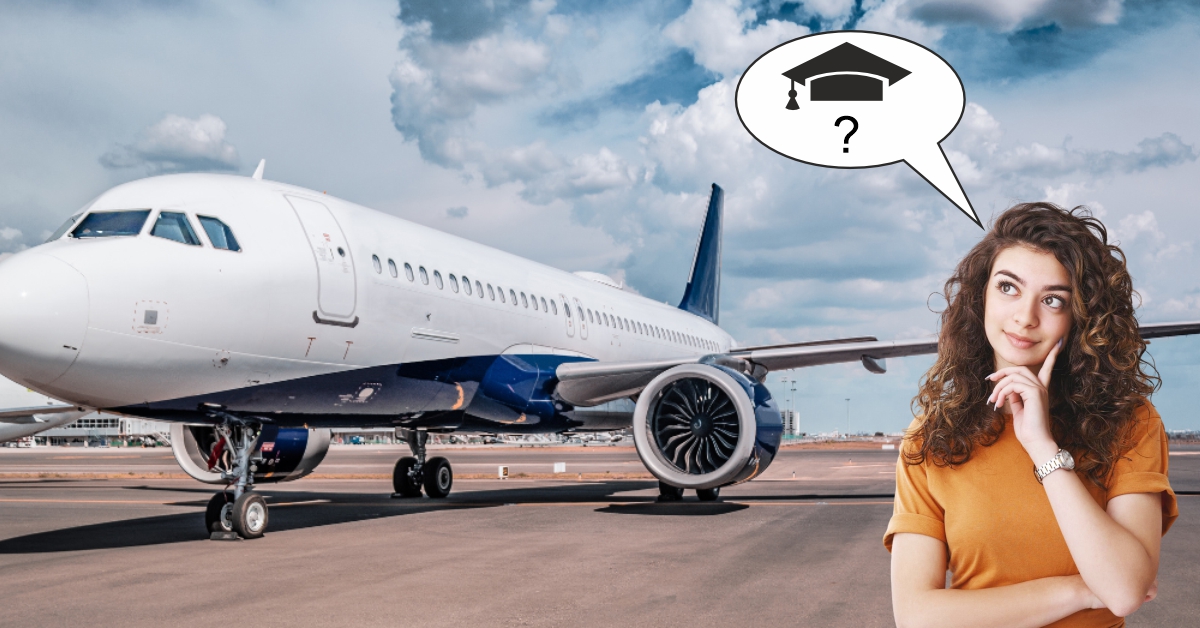What qualifications do I need to enter the aviation field?
Posted on : 1 November, 2025 11:03 am
The aviation sector is enormous and evolving, with many career options ranging from operating aircraft to sustaining and managing aviation systems. Getting into this sector demands a combination of educational achievements, licenses, technical expertise, and personal traits, varying on the particular job you want to pursue.
1. Overview of Aviation Career Paths
It’s necessary to realize the comprehensiveness of jobs in aviation before we discuss the qualifications. Popular career choices include:
- Pilots (Commercial, Airline Transport, Cargo)
- Aircraft Maintenance Engineers/Technicians
- Air Traffic Controllers
- Aerospace Engineers
- Cabin Crew (Flight Attendants)
- Aviation Management Professionals
- Airport Operations and Ground Staff
Each of these professions has distinct qualifications and training paths.
2. Qualifications to Become a Pilot
Educational Requirements
In order to become a pilot, the minimum educational qualification usually consists of:
High school diploma or equivalent with good grades in Maths, Physics, and English.
Certain airlines and nations prefer or mandate a Bachelor’s degree (in Aviation, Aerospace Engineering, or allied fields).
Flight Training and Licenses
The minimum qualification for pilots is obtaining flight training and licenses:
Private Pilot License (PPL): Initial step in the career of a flying professional. Takes 40–60 hours of flight time.
Commercial Pilot License (CPL): Necessary to fly for remuneration. Typically takes 150–250 hours of flight time and clearing theoretical exams.
Airline Transport Pilot License (ATPL): The top level of license to be a captain on multi-crew aircraft. Over 1500 flight hours and advanced knowledge examinations are required.
Type Ratings: Special training to operate specific types of aircraft (e.g., Airbus A320, Boeing 737).
Other Requirements
Medical certification (Class 1 for commercial pilots).
Age (typically 18+ for CPL, 23+ for ATPL).
English language ability (ICAO Level 4 or better).
Background checks and sometimes security clearances.
3. Requirements for Aircraft Maintenance Technicians and Engineers
Academic Qualification
For work in aircraft maintenance:
High school degree with science courses (particularly Physics and Mathematics).
Graduation from an authorized Aviation Maintenance Technician School or Part 147 certified course.
Certifications and Licenses
Aircraft Maintenance Engineer (AME) License (country-specific).
In the U.S., this is the FAA Airframe and Powerplant (A&P) License.
In Europe, it’s EASA Part-66 License with categories (A, B1, B2, etc.).
Skills and Training
Apprenticeship and hands-on training.
Strong knowledge of aviation safety, systems, and mechanical/electrical systems.
4. Air Traffic Controller Qualifications
Educational Track
High school diploma is required; a Bachelor’s degree in Aviation, Engineering, or Physics is ideal in most nations.
Graduation from a national Air Traffic Control (ATC) training course.
Licensing and Certification
Must complete psychometric testing, medical examinations, and ATC simulation tests.
Get a license from the national aviation authority (e.g., FAA in the United States, DGCA in India, EASA in Europe).
Skills Required
Excellent communication and decision-making.
Capable of working under pressure and handling multiple aircraft safely.
5. Qualifications for Aerospace Engineers
Educational Requirements
Bachelor’s in Aerospace Engineering or equivalent field (Mechanical, Electrical, etc.).
For research or senior positions, Master’s or Ph.D. can be necessary.
Certifications
Registration with engineering authorities (e.g., Professional Engineer (PE) license in the United States).
Knowledge of CAD software and materials used in the aerospace industry is common.
6. Cabin Crew (Flight Attendants) Qualifications
Basic Needs
High school diploma or equivalent.
Degree and hospitality background are preferred by some airlines.
Training
Participation in airline-specific cabin crew training programs.
Subjects taught: safety procedures, emergency response, customer service, and first aid.
Other Needs
English fluency (an additional language is a bonus).
Good physical health and grooming standards.
Interpersonal and communication skills are strong.
7. Aviation Management Qualifications
Educational Needs
Bachelor’s degree in Airport Operations, Business Administration, or Aviation Management.
MBA or higher degree is beneficial in senior positions.
Skills and Certifications
Knowledge of airline economics, logistics, and safety regulations.
Certifications such as IATA Diplomas or courses by ICAO can be beneficial to career growth.
8. Requirements for Airport Ground Staff
Educational and Training
High school diploma minimum; diploma in Travel and Tourism or Airport Ground Services is beneficial.
On-the-job training in ticketing, baggage handling, and customer service may be provided by airlines.
Skills
Excellent communication, problem-solving, and time-management skills.
Shift-working and stress-handling capabilities.
9. General Skills and Attributes for All Aviation Careers
Irrespective of the particular job, certain general attributes and soft skills are a must in the aviation industry:
- Attention to Detail: Safety and operational precision require it.
- Communication Skills: Clear coordination in high-stress settings.
- Teamwork: Aviation is a very team-oriented profession.
- Adaptability: Have to adapt to changing schedules and circumstances.
- High Ethics and Responsibility: Lives and safety hinge on aviation experts.
10. Institutions and Bodies of Regulation
Your credentials should comply with the national aviation authority regulations, e.g.,
- FAA (Federal Aviation Administration) – USA
- EASA (European Union Aviation Safety Agency) – Europe
- DGCA (Directorate General of Civil Aviation) – India
- CAA (Civil Aviation Authority) – Different countries
Also, the training should be from licensed institutions or flight schools approved by such authorities.
Conclusion
Joining the aviation industry is a challenging but worthwhile experience. The requirements range from pilot licenses and engineering degrees to customer service skills and air traffic control qualifications. No matter which road you take, technical expertise, soft skills, and regulatory accreditation must be melded together to succeed in this safety-critical business. Careful planning, training, and well-defined requirements will see you flying high in an aviation career.

